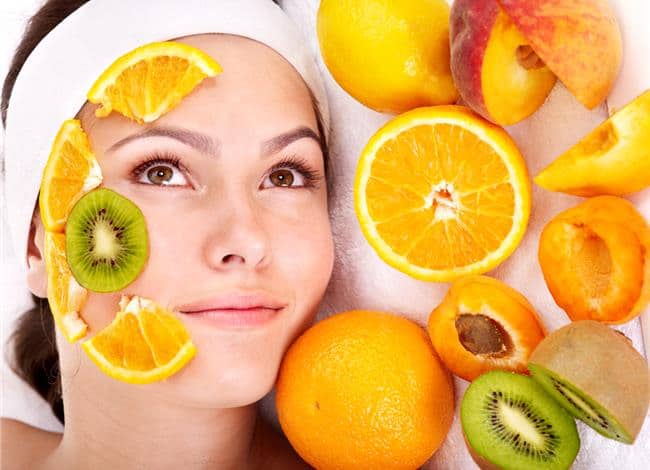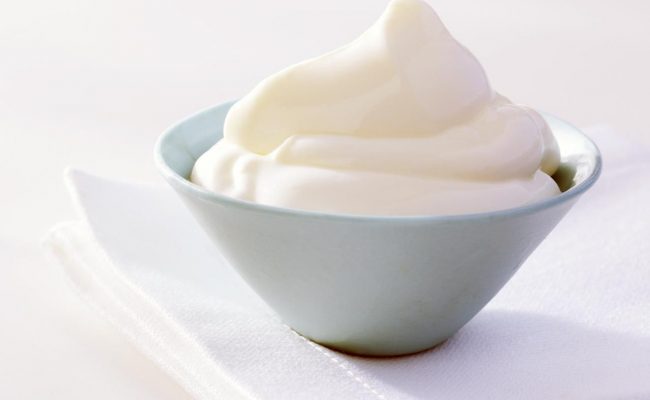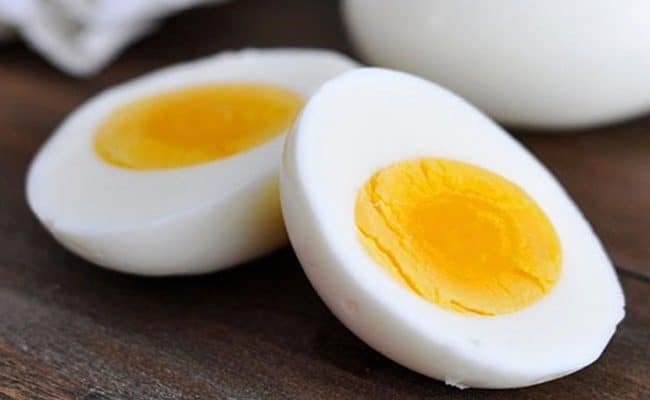
Collagen can be considered something that holds the body together. Collagen acts as a structural component of bones, ligaments, muscles, gums, skin and tendons. The body can make collagen and can add collagen where it’s needed in the body. Collagen is often associated with skin health because collagen plays an important role in providing elasticity for skin that may help lower risk for fine lines.
As we age, collagen production goes down. Exposure to UV light can also lower collagen formation in the skin.
Topical skin products may have collagen in them and be advertised as helping lower risk for wrinkles.
However, as Medical New Today (1) suggests, collagen can’t actually be absorbed through the skin.
Collagen can be added under the skin through injections or altered with laser therapy.
Getting adequate building blocks through the diet is one way to help encourage collagen synthesis in the body.
Adding sources of collagen can help promote skin and bone health.
Can eating collagen or taking collagen supplements directly increase collagen formation? It turns out the answer is not quite so simple.
Amino acids
Collagen is a protein. Therefore, like all other proteins, it is made up of amino acids. Since amino acids are the building blocks for collagen, getting adequate protein from the diet may help encourage collagen synthesis.
The body uses amino acids for many different functions. If collagen is needed, the body will use the amino acids in the body to form new collagen.
A 2012 study (2) concluded branched chain amino acids (BCAA), glutamine and proline can help restore skin collagen after damage from UV exposure.
Eating foods that provide BCAA, glutamine and proline can help provide the necessary amino acids used for collagen synthesis.
Foods high in BCAA and glutamine include: meat, eggs and dairy. Vegetarian sources of BCAA include soy and legumes.
Foods high in proline can include: gelatin, dairy, beef, soy and cabbage. Eating a variety of these foods can ensure you are getting the amino acids needed for collagen formation.
Vitamin C sources
Besides amino acids, another necessary building block for making collagen is vitamin C.
Topical and dietary sources of vitamin C can positively affect skin health and may help treat damage from UV light (3).
Deficiency of vitamin C can lead to a condition called scurvy. If collagen can’t form because there isn’t sufficient vitamin C, blood vessels, gums and skin can seriously be affected and wound healing is delayed.
Adequate intake of vitamin C prevents scurvy, and in developed countries scurvy is considered rare.
Eating foods high in vitamin C is recommended for collagen formation in the body.
Foods high in vitamin C include many fruits and vegetables. In particular, citrus, bell peppers, strawberries and leafy greens.
Does bone broth help boost collagen?
Bone broth is a source of collagen because it is made with animal bones.
Some websites claim bone broth can stimulate collagen formation once ingested.
However, Dr. William H. Percy, an associate professor and biomedical scientist at the University of South Dakota in a 2016 TIME article (4) suggests in reality ingesting bone broth that contains collagen doesn’t mean it will translate to forming collagen in the human body.
The amino acids needed to build collagen are not actually in high amounts in actual collagen from food sources.
So, even though bone broth may contain some collagen, it doesn’t mean it will translate into forming collagen once you ingest it.
Collagen may provide essential amino acids, but the body will use these amino acids for whatever is needed in the body.
Other protein sources will also provide amino acids in higher amounts.
Does bone broth have other health benefits?
It might, but more sound research is needed. Bone broth can be a healthy component of a balanced diet, but any miraculous claims from bone broth do not have research behind them.
Risk factors for collagen depletion
There are certain things that can increase collagen break down.
Having a high sugar intake can increase a process called glycation which means this can eventually lead to damage some proteins in the body.
The result is it can make collagen weak and brittle (5).
Smoking and exposure to UV rays can also damage collagen.
Aging also lowers the rate of collagen synthesis. The elderly have a lower amount of collagen in the skin compared to younger people.
Getting adequate dietary building blocks for making collagen, not smoking, not having a high sugar intake and avoiding excess UV light can help protect collagen levels in the body.
Conclusion
Collagen is a protein in the body that is used as a structural component in bones, skin, gums, tendons and muscles.
Collagen can’t be absorbed across the skin, and ingesting collagen doesn’t mean that collagen will directly go towards building new collagen in the body.
Like all other proteins, collagen is made from amino acids. Specifically, BCAA, glutamine and proline are used for building collagen.
Getting adequate amounts of these amino acids can help promote synthesis of collagen, but any amino acids will be used wherever they are needed in the body.
Good sources of these amino acids includes: meats, dairy, eggs, soy, legumes, gelatin and cabbage.
Vitamin C is another dietary nutrient used to make collagen. Therefore, eating foods high in vitamin C, like fruits and vegetables, can also help promote collagen synthesis in the body.
Foods that contain collagen from animals, like bone broth, doesn’t mean this collagen will translate to collagen in the body.
Aging will naturally lower the amount of collagen the body has as well as smoking, UV exposure and eating a diet high in sugar.












